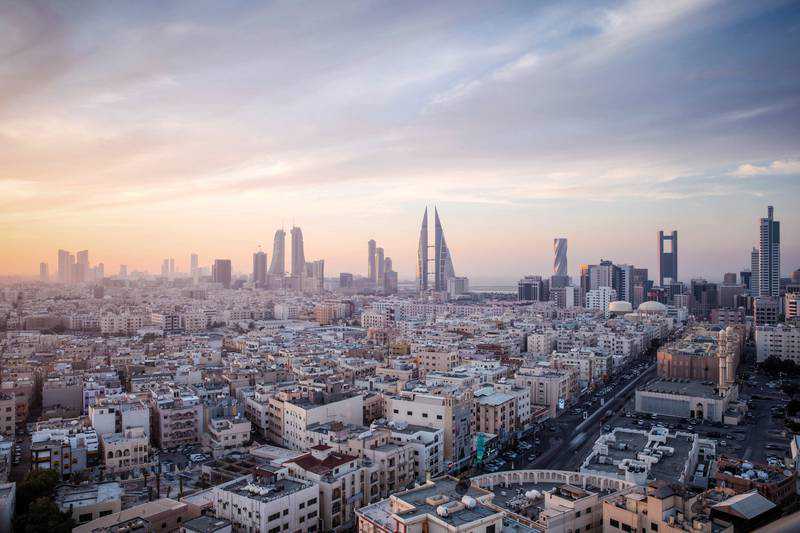UAE, Saudi Arabia and Kuwait to continue backing Bahrain's fiscal balance programme

Image Collected
The finance ministers of Saudi Arabia, the UAE and Kuwait said they will continue to support Bahrain's Fiscal Balance Programme, which aims to achieve a balanced budget by 2024.
The ministers, who met on October 19, reviewed the progress that Bahrain has made so far.
"The ministers affirmed their support to the Kingdom of Bahrain’s efforts in pursuing further reforms to enhance fiscal stability and strengthen sustainable economic growth," they said on Wednesday.
Bahrain unveiled its Fiscal Balance Programme at the end of 2018 in an effort to achieve a balanced budget by 2022. It also received $10 billion in financial support from the UAE, Saudi Arabia and Kuwait in 2018 to help it carry out the plan.
Without the Fiscal Balance Programme, government debt could have risen to 106 per cent of gross domestic product. However, it is expected to decline to 82 per cent in 2022 with the reforms, according to a report by Fitch Ratings this year.
"Initial steps at the start of 2019 included the introduction of VAT and a voluntary retirement scheme," the report said.
However, the Gulf country said it will have to postpone its target of achieving a balanced budget to 2024 as Covid-19 resulted in economic headwinds last year.
Despite the shift in the target, the ministers said at the recent meeting that they welcomed Bahrain's progress.
"The ministers welcomed the efforts made by the government of Bahrain in implementing the Fiscal Balance Programme, and the progress made by the government despite the challenges posed by the Covid-19 pandemic," they said.
The Arab Monetary Fund attended the meeting as an advisory body to provide assessment of the programme's achievements.
Bahrain's economy is estimated to have shrunk 5.4 per cent last year, driven by a sharp contraction in non-oil output, according to the International Monetary Fund.
The country, the smallest within the six-member GCC economic bloc, is expected to expand 3.3 per cent this year owing to its quick policy response to minimise the effects of the pandemic on its economy and its people, the fund said earlier this year.
The country’s non-oil economy will grow 3.9 per cent in 2021 as wider vaccine distribution encourages economic activity, the IMF said.
Bahrain could continue receiving support from the other GCC countries if it presses ahead with its reforms that are tailored to achieve a balanced budget and cut government debt, Fitch said.
"A broader reboot of the FBP [fiscal balance programme] would facilitate further GCC support beyond 2023, in line with our assumptions when we affirmed Bahrain’s Long-Term Foreign-Currency Issuer Default Rating at 'B+', with a 'stable' outlook, in April 2021," the rating agency said.
The ministers, who met on October 19, reviewed the progress that Bahrain has made so far.
"The ministers affirmed their support to the Kingdom of Bahrain’s efforts in pursuing further reforms to enhance fiscal stability and strengthen sustainable economic growth," they said on Wednesday.
Bahrain unveiled its Fiscal Balance Programme at the end of 2018 in an effort to achieve a balanced budget by 2022. It also received $10 billion in financial support from the UAE, Saudi Arabia and Kuwait in 2018 to help it carry out the plan.
Without the Fiscal Balance Programme, government debt could have risen to 106 per cent of gross domestic product. However, it is expected to decline to 82 per cent in 2022 with the reforms, according to a report by Fitch Ratings this year.
"Initial steps at the start of 2019 included the introduction of VAT and a voluntary retirement scheme," the report said.
However, the Gulf country said it will have to postpone its target of achieving a balanced budget to 2024 as Covid-19 resulted in economic headwinds last year.
Despite the shift in the target, the ministers said at the recent meeting that they welcomed Bahrain's progress.
"The ministers welcomed the efforts made by the government of Bahrain in implementing the Fiscal Balance Programme, and the progress made by the government despite the challenges posed by the Covid-19 pandemic," they said.
The Arab Monetary Fund attended the meeting as an advisory body to provide assessment of the programme's achievements.
Bahrain's economy is estimated to have shrunk 5.4 per cent last year, driven by a sharp contraction in non-oil output, according to the International Monetary Fund.
The country, the smallest within the six-member GCC economic bloc, is expected to expand 3.3 per cent this year owing to its quick policy response to minimise the effects of the pandemic on its economy and its people, the fund said earlier this year.
The country’s non-oil economy will grow 3.9 per cent in 2021 as wider vaccine distribution encourages economic activity, the IMF said.
Bahrain could continue receiving support from the other GCC countries if it presses ahead with its reforms that are tailored to achieve a balanced budget and cut government debt, Fitch said.
"A broader reboot of the FBP [fiscal balance programme] would facilitate further GCC support beyond 2023, in line with our assumptions when we affirmed Bahrain’s Long-Term Foreign-Currency Issuer Default Rating at 'B+', with a 'stable' outlook, in April 2021," the rating agency said.
Source: https://www.thenationalnews.com
Tags :
Previous Story
- Malware attacks in Middle East jump 17% to...
- South Asia’s migrant staff are facing a careers...
- New law more likely to cut Bangladeshi jobs...
- Kuwait cabinet discusses visa trading issues
- Shahriar: Bangladeshis on Middle East countries won't lose...
- COVID-19: Travel ideas of NRIs be fallible as...
- Triple-fold increase in UAE travellers booking trips using...